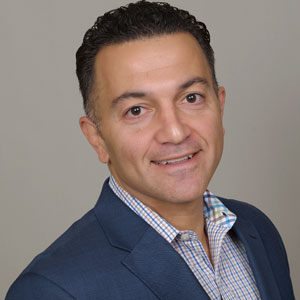By Clode Moradi, MSPFP, CFP®, FBS®
 There are a few key steps you can follow to set yearly financial goals:
There are a few key steps you can follow to set yearly financial goals:
1. Determine your current financial situation: This includes understanding your income, expenses, debts, and
assets. This will help you know where you are starting from and what you have to work with.
2. Set specific, measurable, attainable, relevant, and time-bound (SMART) goals: Your financial goals should
be specific, so you know exactly what you are working towards. They should be measurable, so you can track
your progress. They should be attainable, so you don’t set yourself up for failure. They should be relevant, so
they align with your values and priorities. And they should be time-bound, so you have a deadline to work
towards.
4. Make a Plan: Now that you have your goals, it’s time to figure out how to achieve them. The right strategy
will depend on your unique situation. For example, you may see that you can create positive cash flow in your
budget by utilizing tax strategies that save you money and could be put to work as part of an investment
strategy.Track your progress: It’s important to regularly check in on your progress to see how you are doing
and make any necessary adjustments to your plan.
5. Celebrate your successes: Don’t forget to celebrate your accomplishments along the way! This can help
keep you motivated and focused on your goals.
 Clode Moradi, MSPFP, CFP®
Clode Moradi, MSPFP, CFP®
Clode is an independent Certified Financial Planner™ and has a Post-CFP® Masters Degree in Advanced Personal Financial Planning, from Kansas State University, one of the most prominent financial planning universities in the nation. He graduated at the top of his class with a 4.0 GPA and was awarded a nomination and acceptance into the honorary society of Phi Kappa Phi to represent the importance of higher education in the Financial Planning industry.
Clode specializes in taxation, retirement, and investment planning as they relate to personal goals and quality of life. He also holds a Graduate Level Certification in Financial Therapy, and has written extensive research articles on financial topics such as goal based portfolio construction, how to define “financial success”, money psychology and its manifested human behaviors, and various other topics related to finance, taxation, and human behavior as they relate to one’s quality of life. Clode also has a Bachelor’s Degree in Personal Financial Planning, where he graduated Summa Cum Laude from Franklin University of Ohio. He is an active member of the Financial Planning Association and Financial Therapy Association.
Clode is the founder of Brilliant Financial Strategies, LLC. He started in the financial industry more than 20 years ago and created BFS as a platform to offer financial planning at a much deeper level. Clode feels that Financial Planning needs to break out and surpass the status quo. “Our job is to help clients make use of their financial potential to build a meaningful life”.
He enjoys spending quality time with his wonderful family. Clode’s hobbies include saltwater fishing and Brazilian Jiu-Jitsu. Clode is the creator of a group called Kool Kids Fish that introduces kids and their parents to the hobby of fishing, as a means of spending quality time together. Clode also coaches a kids Jiu-Jitsu Competition class at Gracie Barra La Canada-Flintridge, where he works with kids and teens that compete in Jiu-Jitsu tournaments nationally. One of his most valued personal accomplishments is receiving his brown belt in Brazilian Jiu-Jitsu from ADCC world champion Orlando Sanchez of Gracie Barra.
Clode’s approach to life, money, and financial planning is to create quality of life through balance and honest self-reflection. He believes that abundance can only have value when there is balance in one’s household, family, and internal being. He brings this approach to all aspects of life.
Disclaimers
This article is for reference and informational purposes only and does not provide tax, legal, or accounting advice. It is for guidance only and not a substitute for the user seeking personalized financial planning and professional advice. It is not intended to provide, and should not be relied on for, investment, tax, legal or accounting advice. You should consult your own financial, tax, legal, and accounting advisors before engaging in any transaction.

